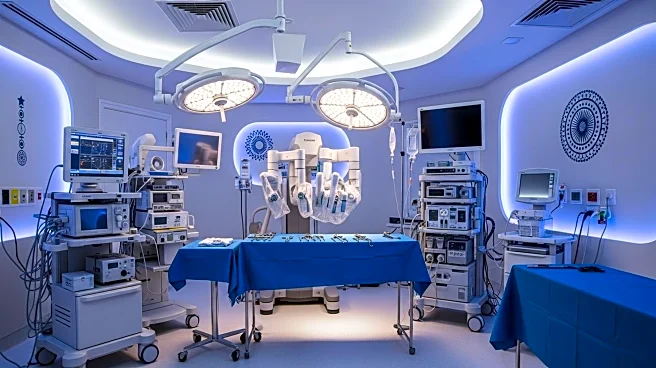What's Happening?
The medical tourism industry is experiencing significant growth, with Brazil and India emerging as leading destinations for advanced medical procedures. According to Newsweek, hospitals in these countries are attracting international patients seeking high-quality care in areas such as neurosurgery, cardiac surgery, and oncology. Brazil is noted for its innovative technologies and welcoming culture, while India offers affordable treatments and comprehensive support services for medical tourists. The industry is projected to grow substantially, driven by advancements in medical technology and the increasing demand for specialized care.
Why It's Important?
Medical tourism is becoming a crucial component of the global healthcare industry, offering patients access to advanced treatments that may not be available in their home countries. This trend has significant implications for healthcare providers, as it drives investment in infrastructure and technology, enhancing the quality of care. Additionally, the influx of international patients contributes to the economic growth of host countries, creating jobs and boosting related industries such as hospitality and travel. The expansion of medical tourism underscores the importance of global collaboration in healthcare innovation.
What's Next?
As the medical tourism industry continues to grow, hospitals in Brazil and India are likely to expand their services and infrastructure to accommodate increasing demand. This may include the development of specialized programs and partnerships to enhance patient experience and ensure seamless care. Additionally, the industry may see further advancements in medical technology, improving the quality and accessibility of treatments. The continued growth of medical tourism will require ongoing efforts to address challenges such as cultural differences and logistical barriers, ensuring that patients receive safe and effective care.
Beyond the Headlines
The rise of medical tourism raises ethical and legal considerations, particularly regarding patient safety and the regulation of international healthcare practices. Ensuring that patients receive high-quality care requires robust oversight and adherence to international standards. Additionally, the industry must navigate cultural sensitivities and language barriers to provide inclusive and empathetic care. The long-term impact of medical tourism may include shifts in healthcare delivery models, emphasizing patient-centered approaches and global collaboration.










